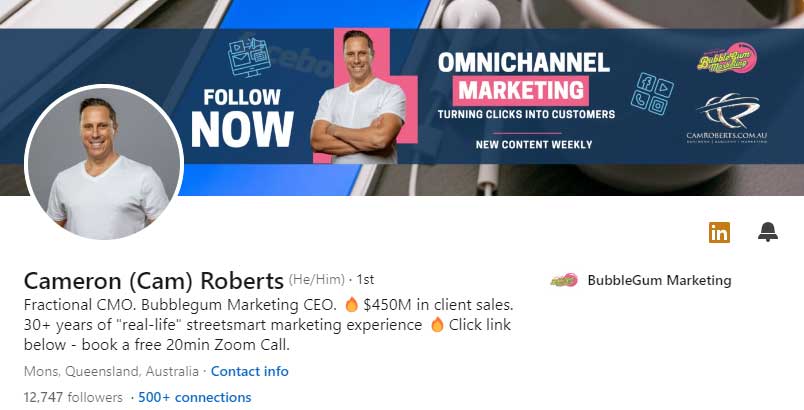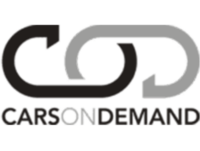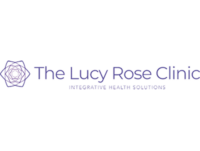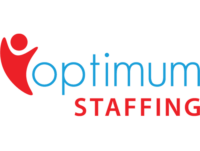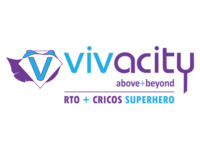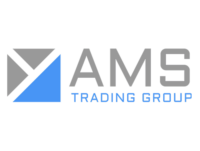Best Marketing Automation Tools In 2025
By Cameron Roberts – Founder & CEO of Bubblegum Marketing,
Posted On February 18, 2025
Marketing automation is using software to manage regular marketing tasks. This includes sending emails, posting on social media, running ads, and following up with customers. It helps businesses save time, stay organized, and connect with customers more effectively.
In 2025, marketing automation tools got better. They help businesses send personal messages, follow customer actions, and get better marketing results. Instead of spending hours on manual tasks, marketers can focus on creating better campaigns and growing their business.
This guide will look at the best marketing automation tools in 2025. It will explain their main features, benefits, and how to choose the right one for you.
Defining Marketing Automation
At its core, marketing automation is about efficiency and intelligence. It involves using software to perform tasks and processes that would otherwise require human intervention. These automated marketing platforms are designed to manage marketing processes and multifunctional campaigns, across multiple channels, automatically. By automating repetitive tasks, businesses can achieve a higher level of efficiency and consistency in their marketing efforts.
Key Components of Marketing Automation
Marketing automation encompasses a wide range of tools and strategies. Key components include customer relationship management (CRM) integration, lead generation, email marketing, social media management, and analytics. Each of these components plays a crucial role in the overall effectiveness of a marketing automation strategy. CRM integration helps keep track of all customer interactions in an organized way. Analytics give useful information to improve marketing strategies.
The Evolution of Marketing Automation
The evolution of marketing automation has been driven by technological advancements and changing consumer expectations. Initially, marketing automation focused primarily on email marketing. However, as technology evolved, these tools have expanded to include social media, content management, and advanced analytics. Today, marketing automation platforms are highly sophisticated, offering a wide range of features that enable businesses to deliver personalized experiences at scale.
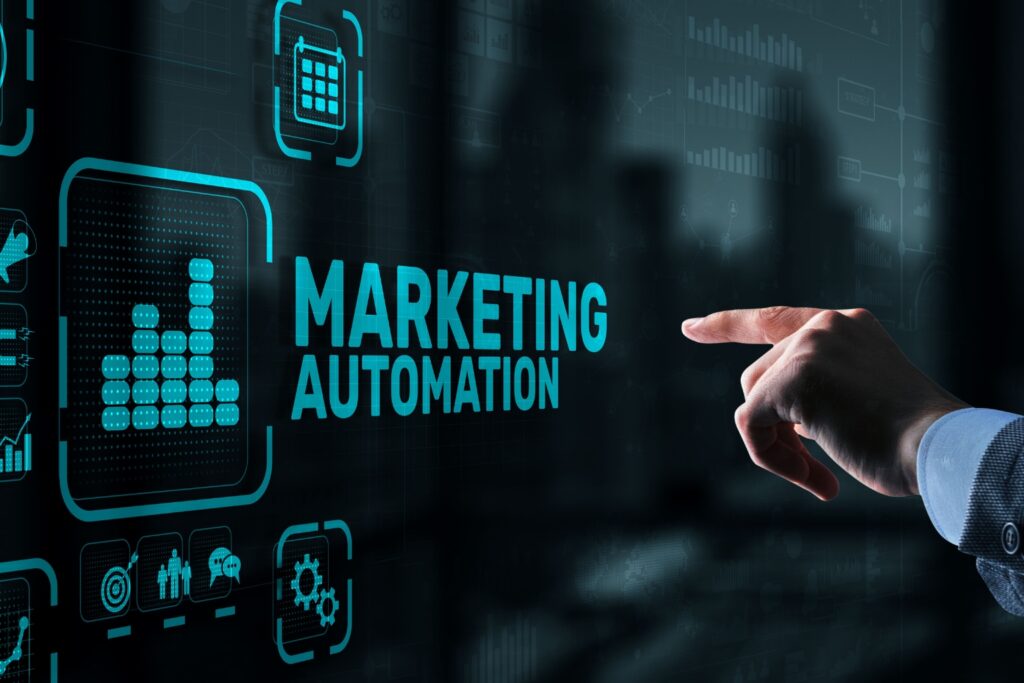
Why Use Marketing Automation Tools?
Marketing automation tools offer numerous benefits to businesses, such as:
Efficiency
Automate repetitive tasks to save time and effort. By automating tasks such as sending emails, scheduling social media posts, and managing ads, businesses can save time and money. This efficiency allows marketing teams to focus on strategic initiatives that drive growth and innovation.
Personalization
Deliver personalized content and communications to your audience. Marketing automation tools enable businesses to tailor their messaging based on customer behavior, preferences, and demographics. This personalization enhances customer experiences and fosters stronger relationships, ultimately leading to increased loyalty and conversions.
Data-Driven Decisions
Use analytics and insights to make informed decisions. Marketing automation platforms provide access to a wealth of data and analytics that can inform decision-making. By analyzing customer interactions and campaign performance, businesses can identify trends, optimize their strategies, and allocate resources more effectively.
Improved ROI
Optimize marketing efforts to increase return on investment. By making processes easier and reaching the right audience with the right message at the right time, marketing automation tools can greatly increase return on investment (ROI). With better targeting and personalization, businesses can achieve higher conversion rates and maximize the impact of their marketing spend.

Top Marketing Automation Tools in 2025
1. HubSpot
HubSpot marketing automation software continues to be a leader in the marketing automation space. Known for its user-friendly interface and robust features, HubSpot offers tools for email marketing, social media management, lead nurturing, and analytics. Its CRM integration is seamless, making it a top choice for businesses of all sizes.
HubSpot’s All-in-One Platform
HubSpot’s all-in-one platform is designed to support businesses in managing their entire marketing funnel. From attracting visitors to converting leads and closing customers, HubSpot provides a comprehensive suite of tools to streamline these processes. This makes it an ideal choice for businesses looking to centralize their marketing efforts.
Advanced Analytics and Reporting
HubSpot offers advanced analytics and reporting capabilities that provide deep insights into marketing performance. With customizable dashboards and detailed reports, businesses can track key metrics and make data-driven decisions. This level of insight enables marketers to refine their strategies and achieve better results.
HubSpot’s Community and Support
One of HubSpot’s standout features is its vibrant community and extensive support resources. From online forums and webinars to comprehensive training programs, HubSpot offers a wealth of resources to help users get the most out of their platform. This support network is invaluable for businesses looking to maximize their marketing automation efforts.
2. Marketo Engage
Marketo Engage, a part of Adobe Experience Cloud, is another powerful marketing automation platform. It offers advanced features like lead management, email marketing, and account-based marketing (ABM). Marketo’s AI-driven analytics help businesses understand customer behavior and optimize their marketing strategies accordingly.
AI-Driven Customer Insights
Marketo Engage leverages AI to provide advanced customer insights that drive smarter marketing strategies. By analyzing customer behavior and interactions, Marketo’s AI tools can identify patterns and trends that inform targeting and personalization efforts. This allows businesses to deliver more relevant and engaging experiences to their audience.
Comprehensive Lead Management
Marketo’s lead management capabilities are robust, offering tools for capturing, scoring, and nurturing leads throughout the customer journey. With features like automated lead nurturing and scoring, businesses can efficiently manage their pipeline and focus on high-value prospects. This comprehensive approach to lead management is a key strength of the platform.
Seamless Integration with Adobe Experience Cloud
As part of Adobe Experience Cloud, Marketo Engage offers seamless integration with other Adobe tools. This integration enables businesses to leverage a suite of solutions for content creation, analytics, and customer experience management. The ability to integrate with Adobe’s ecosystem provides added value and flexibility for marketers.
3. Salesforce Marketing Cloud
Salesforce Marketing Cloud is a comprehensive platform that integrates with Salesforce CRM. It offers tools for email marketing, social media management, and customer journey mapping. With AI capabilities, businesses can deliver personalized experiences to their customers, enhancing engagement and loyalty.
Journey Builder and Customer Pathways
Salesforce Marketing Cloud’s Journey Builder allows marketers to create personalized customer journeys across multiple channels. By mapping out customer pathways and automating touchpoints, businesses can deliver relevant content and offers at each stage of the journey. This capability enhances customer engagement and fosters long-term loyalty.
Social Studio for Social Media Management
Social Studio, a component of Salesforce Marketing Cloud, provides powerful tools for social media management. With features for scheduling, monitoring, and engaging with audiences, businesses can effectively manage their social presence. Social Studio also offers advanced analytics to track social performance and inform strategy.
Integration with Salesforce CRM
A major advantage of Salesforce Marketing Cloud is its integration with Salesforce CRM. This integration ensures that all customer interactions and data are centralized, providing a complete view of the customer. The ability to seamlessly connect marketing and sales efforts enhances collaboration and drives better results.
4. ActiveCampaign
ActiveCampaign is known for its powerful automation capabilities and affordability. It offers email marketing, CRM, and sales automation features. ActiveCampaign’s intuitive interface makes it easy to set up and manage campaigns, making it an excellent choice for small to medium-sized businesses.
Intuitive Automation Builder
ActiveCampaign’s automation builder is intuitive and user-friendly, allowing businesses to create complex automation workflows with ease. With a drag-and-drop interface and pre-built templates, marketers can quickly set up and manage automated campaigns. This ease of use makes ActiveCampaign accessible to businesses with varying levels of expertise.
CRM and Sales Automation Integration
ActiveCampaign integrates CRM and sales automation features into its platform, providing a seamless solution for managing customer relationships. By combining marketing and sales efforts, businesses can streamline processes and improve collaboration between teams. This integration enhances efficiency and drives better results.
Cost-Effective Solution for SMBs
ActiveCampaign’s affordability makes it an attractive option for small to medium-sized businesses. With flexible pricing plans and a range of features, businesses can choose the level of functionality that best suits their needs and budget. This cost-effective approach makes marketing automation accessible to businesses of all sizes.
5. Mailchimp
Mailchimp offers an easy-to-use automated digital marketing solution, initially known for email marketing, has evolved into a full-fledged marketing automation platform. It offers tools for email marketing, social media ads, and landing pages. Mailchimp’s ease of use and affordability make it a popular choice for small businesses and startups.
Evolution from Email to Full Automation
Mailchimp’s evolution from an email marketing tool to a full marketing automation platform reflects the changing needs of businesses. Today, Mailchimp offers a wide range of features, including social media advertising and landing page creation, that enable businesses to execute comprehensive marketing strategies.
User-Friendly Interface for Beginners
Mailchimp’s user-friendly interface is designed with beginners in mind, making it easy for businesses to get started with marketing automation. With intuitive navigation and helpful tutorials, Mailchimp provides a low barrier to entry for businesses new to automation. This accessibility is a key reason for its popularity among startups.
Affordable Pricing for Budget-Conscious Businesses
Mailchimp offers affordable pricing plans that cater to the needs of budget-conscious businesses. With a range of options, businesses can choose the plan that aligns with their needs and budget. This affordability, combined with a robust feature set, makes Mailchimp a compelling choice for small businesses.

Choosing the Right Marketing Automation Tool
When selecting a marketing automation tool, consider the following factors:
📢 Follow for Expert Marketing Insights!🔹 Follow Now: LinkedIn Profile
Integration
Ensure that the tool integrates seamlessly with your existing systems, such as your CRM and other marketing platforms. This will help streamline your marketing efforts and prevent data silos.
Importance of Seamless Integration
Seamless integration is crucial for ensuring that all your marketing efforts are aligned and efficient. A tool that integrates well with your existing systems will help you manage customer data effectively and coordinate marketing activities across channels. This integration minimizes the risk of data silos, which can hinder decision-making and strategy execution.
Evaluating Integration Capabilities
When evaluating marketing automation tools, assess their integration capabilities with your current tech stack. Consider whether the tool offers native integrations with your CRM, email marketing platform, and other essential systems. Additionally, explore the availability of APIs and third-party connectors that can facilitate integration.
Integration for Enhanced Collaboration
Integration not only streamlines processes but also enhances collaboration across teams. By ensuring that all data and activities are centralized, teams can work together more effectively. This collaboration leads to more cohesive marketing strategies and improved outcomes.
Scalability
Choose a tool that can grow with your business. As your business expands, your marketing automation needs may change, so it’s essential to select a platform that can accommodate this growth.
Planning for Future Growth
When selecting a marketing automation tool, it’s important to consider your future growth plans. A scalable platform will allow you to add new features and capabilities as your needs evolve. This flexibility is essential for businesses looking to expand their marketing efforts and reach new audiences.
Evaluating Scalability Features
Evaluate the scalability features of each platform, such as the ability to handle increased data volumes, support additional users, and integrate with new systems. Consider whether the tool can accommodate new marketing channels and strategies as your business grows. This foresight will ensure that your chosen platform can support your long-term goals.
Scalability and Cost Considerations
Scalability often comes with cost implications, so it’s important to balance scalability with your budget. Consider how the platform’s pricing changes as you scale up and whether it remains cost-effective as your needs expand. This consideration will help you choose a tool that provides value both now and in the future.
Ease of Use
A user-friendly interface is crucial, especially if your team is new to marketing automation. Look for platforms with intuitive designs and comprehensive support resources.
Importance of Intuitive Design
An intuitive design is essential for ensuring that your team can easily navigate and use the platform. A user-friendly interface reduces the learning curve and allows your team to focus on strategy rather than struggling with technical challenges. This ease of use is particularly important for teams new to marketing automation.
Evaluating User Experience
When evaluating marketing automation tools, consider the user experience and interface design. Choose platforms that are easy to navigate, offer customizable dashboards, and have user-friendly features. Additionally, assess the availability of support resources, such as tutorials, documentation, and customer support, to assist your team.
Training and Onboarding Support
Comprehensive training and onboarding support are important for ensuring that your team can effectively use the platform. Look for tools that offer onboarding sessions, webinars, and training programs to help your team get up to speed. This support will enable your team to leverage the platform’s full potential and achieve better results.
Features
Consider the specific features you need for your marketing strategy. Some tools may excel in email marketing, while others might offer superior social media management capabilities. Make sure the tool aligns with your goals.
Aligning Features with Goals
When choosing a marketing automation tool, it’s important to align the platform’s features with your marketing goals. Consider the specific capabilities you need, such as email marketing, social media management, lead nurturing, and analytics. Ensure that the tool offers the features that will support your strategy and drive your desired outcomes.
Evaluating Feature Sets
Evaluate the feature sets of each platform to determine which tool best meets your needs. Consider the depth and breadth of features offered, as well as their ease of use and customization options. This evaluation will help you choose a tool that provides the functionality you need to execute your marketing strategy effectively.
Prioritizing Must-Have Features
Identify the must-have features that are essential for your marketing efforts. Prioritize these features when evaluating tools to ensure that your chosen platform meets your core requirements. This prioritization will help you make a more informed decision and select a tool that aligns with your objectives.
Cost
Stay within your budget. Marketing automation tools come in all price ranges, so pick one that fits your needs without overspending.
Balancing Cost and Value
When selecting a marketing automation tool, it’s important to balance cost with value. Consider not only the upfront costs but also the ongoing expenses associated with the platform. Evaluate the value that each tool provides in terms of features, scalability, and support to ensure that you’re getting the best return on your investment.
Exploring Pricing Models
Explore the pricing models of each platform, including subscription fees, usage-based pricing, and additional costs for premium features. Consider how these pricing models align with your budget and usage patterns. This exploration will help you choose a tool that fits your financial constraints while providing the functionality you need.
Cost Considerations for Growth
As your business grows, your marketing automation needs and costs may change. Consider how the platform’s pricing scales with your business and whether it remains affordable as your needs expand. This consideration will help you choose a tool that provides long-term value and supports your growth objectives.

🚀 Need a marketing consultant who understands automation? Check out Cam Roberts’ expert consulting services and start optimizing your strategy today.
The Future of Marketing Automation
As technology continues to evolve, marketing automation tools will become even more sophisticated. AI and machine learning will play a significant role in personalizing customer experiences and optimizing marketing strategies. Businesses that embrace these advancements will be better positioned to succeed in the competitive landscape of 2025 and beyond.
AI and Machine Learning in Automation
AI and machine learning are set to revolutionize marketing automation by enabling more personalized and data-driven strategies. These technologies will allow businesses to analyze vast amounts of data and generate insights that inform marketing decisions. By leveraging AI and machine learning, businesses can deliver hyper-personalized experiences that resonate with their audience.
Enhanced Customer Experiences
The future of marketing automation will focus on enhancing customer experiences through more targeted and relevant interactions. Automation tools will enable businesses to engage with customers across multiple touchpoints, delivering consistent and personalized messages. This focus on customer experience will drive higher engagement and loyalty.
Embracing Innovation for Competitive Advantage
Businesses that embrace innovation and stay ahead of technological advancements will gain a competitive advantage in the marketplace. By adopting cutting-edge marketing automation tools and strategies, businesses can differentiate themselves and capture new opportunities. This proactive approach to innovation will be key to success in the evolving digital landscape.
Conclusion
Marketing automation is no longer a luxury; it’s a necessity for businesses looking to thrive in the digital age. By choosing the right marketing automation tool, you can streamline your marketing efforts, improve customer engagement, and ultimately, boost your bottom line. Whether you’re a marketing automation specialist or a business owner, consider the tools we’ve discussed in this article and find the one that best suits your needs.
WANT TO BE OUR NEXT SUCCESS STORY?
Book a Free Consult
Schedule a 15-minute Free Consultation via Zoom meetings with our Director, Cam Roberts by clicking the button below now:
Recent Articles
- Why Your Email Click Rates Look Low in 2025
- How Our eCommerce Marketing Agency Drove 121% Growth
- What Is Google BARD? A Guide to Google’s New AI
- Facebook Ads Budgeting & Strategies for 2025
- Top Marketing Strategies from Fortune 500 Companies
- Weird & Wonderful: Things Google Probably Doesn’t Want You to Know
- Top 7 Mistakes Businesses Make Without a Facebook Ads Specialist
- Why Automated Sales Funnels Are a Game-Changer for Small Businesses
- How to Choose the Right Facebook Ads Agency in 2025
- Social Media Advertising Trends 2025 for Business Growth
Request A Quote
Request A Quote for your next Website or Funnel Project below:
